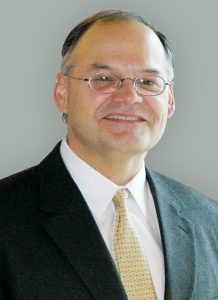Every day, people make decisions with real impact on their lives, yet don’t ask for advice. Should I change jobs, change careers, or even return to school? Should I wait to buy a house or do it now, and if so, where? Should I move to greener pastures out of state, or make my life here? Should I try online dating or stick with traditional means to find a mate, or vice versa?

When faced with problems like these, people often make inferior decisions that could have been avoided if they had consulted their friends, family, peers, and colleagues first.
Why You Should Ask for Advice
How does getting advice lead to better outcomes? For one thing, it can lead directly to a solution to a difficult problem. But advice offers other benefits that are often ignored. You may receive new information, leading to a more informed decision; you might also meet people or find resources that can help. Asking for advice will also provide you with a different perspective on your problem and can help you to identify goals. You can proceed with confidence, knowing that no aspects of the problem have been overlooked and enjoying moral support and deepened social engagement with the possibility of more aid in the future.
Why Wouldn’t You Ask for Advice?
With these benefits in mind, you may be wondering why more people – particularly men– don’t ask for advice. My experience in life, business, and research indicate that there are two main reasons: one immediate, and the other “structural”. The immediate reason is that people just don’t think of it; it doesn’t occur to us to seek out advice unless we’re obligated to, like in cases involving medical and legal issues.
The more complex, structural reason involves parenting and teaching. Children are brought up to express regret when causing harm and to give thanks when accepting help. However, nobody has been brought up to think whether he has the knowledge and experience to deal with a problem or issue alone, and if not, who does is able to help.
Teachers and parents do train children to consult books or even the web, which are great sources of general knowledge, principles, stories, and examples. However, these are not good sources of advice, except for simple, everyday problems, because they don’t deal with your circumstances, goals, and constraints. These must be understood by anyone who wishes to give good advice. Generally, only people-to-people contact can do that, preferably in person.
My research has uncovered 28 reasons why people fail to seek advice. One that is thought to particularly affect men is a fear of appearing weak. Perhaps that is why male motorists, before the introduction of the GPS and other directional devices, tended to avoid asking for directions while lost. Personally, I’ve never understood this. I’m lost in an unfamiliar place, surrounded by a dozen pedestrians or drivers who are experts in getting to my destination, yet I won’t ask? How absurd and ineffective.
The End Goal
I believe that one has to change one’s approach to making decisions. Our task is not to do everything on our own and take the best course using our own knowledge and resources – this is pointlessly heroic and needlessly risky. Rather, our task is to make good decisions, helped by leveraging good advice from others.
The one big secret to making better decisions is this: when confronted with an important problem, think if you have all that’s needed to go it alone, and if not, approach others for specific advice on the problem. Or just ask for advice anyway, because you might be deluding yourself.
Advice seeking is an acquired skill that improves with practice and with learning about good habits and techniques: how to identify good advisors and approach them, how to set up sessions for the best outcomes, dealing with contradictory advice, closing the loop with advisors, and many others.
May you get advice, make good decisions, and prosper.
*********************************************
 Raul Valdes-Perez is the author of Advice is for Winners: How to Get Advice for Better Decisions in Life and Work. He co-founded the business software company Vivisimo in 2000 and led it as CEO and chairman through 2009, then becoming executive chairman until the acquisition by IBM in 2012. He was named a 2007 Ernst & Young Entrepreneur of the Year for the North Central Region. Raul received a Ph.D. in computer science from Carnegie Mellon in 1991.
Raul Valdes-Perez is the author of Advice is for Winners: How to Get Advice for Better Decisions in Life and Work. He co-founded the business software company Vivisimo in 2000 and led it as CEO and chairman through 2009, then becoming executive chairman until the acquisition by IBM in 2012. He was named a 2007 Ernst & Young Entrepreneur of the Year for the North Central Region. Raul received a Ph.D. in computer science from Carnegie Mellon in 1991.
Photo by CEBImagery.com

1 comment
Sad to say it, but I’ve been sent on more “wild goose chases” and stuck on endless loops from GPS devices in my automobile more than ever before they came into use. I’ll take an intuitive female co-pilot (with a decent map) over GPS any day!
Comments are closed.